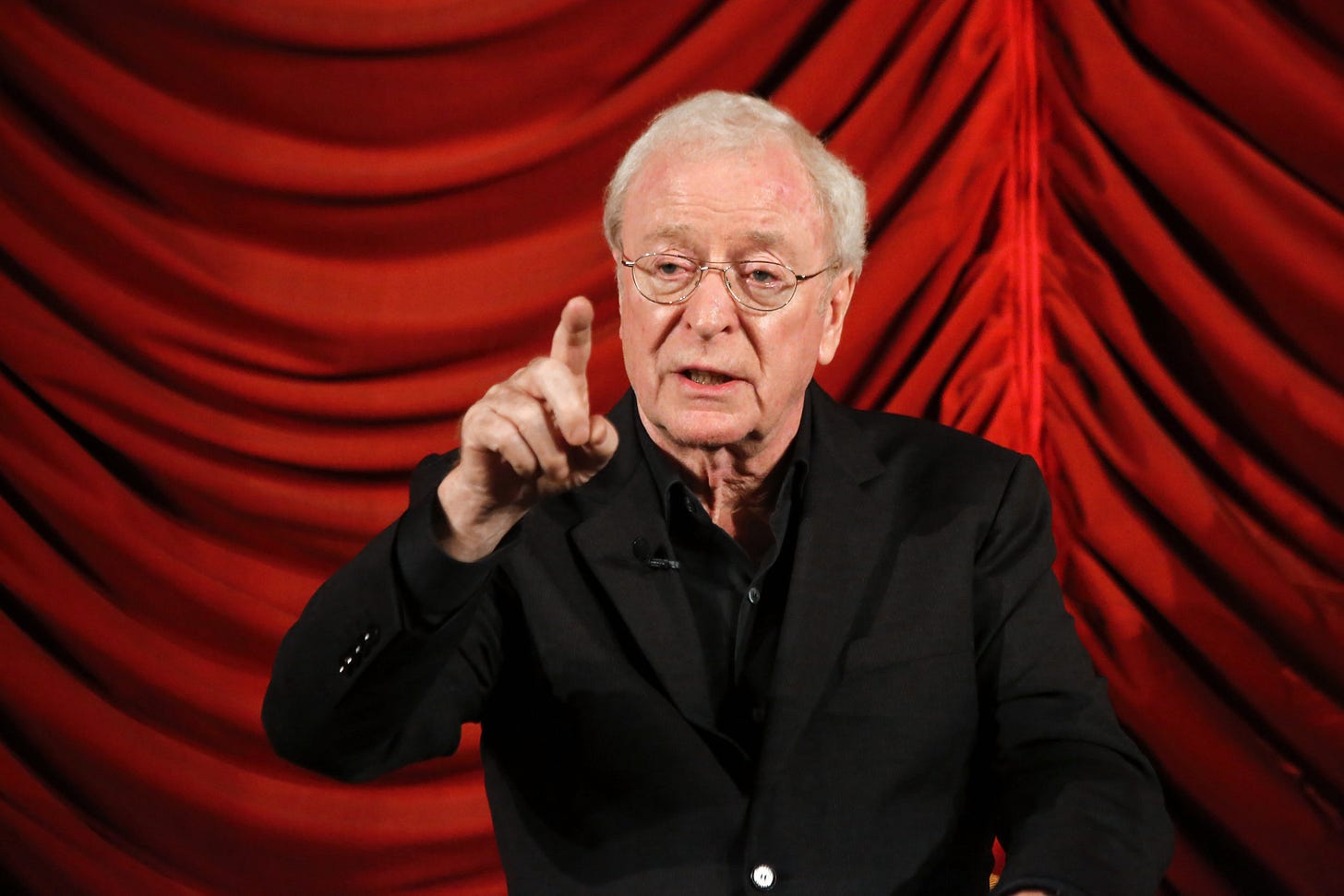What Sir Michael Caine Learned From a Chair
The Art of Turning Obstacles Into Assets
Early in his career, the famous actor Sir Michael Caine struggled with an errant chair disrupting a scene. It blocked the doorway he was supposed to enter through, and his teacher gave him a piece of advice that stuck with him:
“Use the difficulty,” Caine said. “If it’s a comedy, fall over (the chair). If it’s a drama, pick it up and smash it…Now I took that and I used it in my own life...There’s never anything so bad that you cannot use that difficulty. If you can use it a quarter of one percent to your advantage, you’re ahead.”
1,800 years ago, the Roman Emperor and Stoic philosopher Marcus Aurelius used the same strategy to rule an empire and himself — he turned obstacles into assets.
“Our actions may be impeded…” Marcus wrote, “but there can be no impeding our intentions or dispositions. Because we can accommodate and adapt. The mind adapts and converts to its own purposes the obstacle to our acting. The impediment to action advances action. What stands in the way becomes the way1.”
Marcus explains: “If you accept the obstacle and work with what you’re given, an alternative will present itself—another piece of what you’re trying to assemble. Action by action.2”
Any obstacle can be a whetstone to sharpen our character. If we embrace impediments they leave us better people: better able to endure in the face of setbacks, to offer kindness in the face of hostility, to be disciplined in the face of distraction.
Artists have long found that channeling creativity within the hard limits of a self-imposed medium or style makes them more creative. The constraints force them to reach deeper and find something transcendent.
So too do hard limits and setbacks make us great because in reaching past them and using them to our advantage we find what is truly great in ourselves.
Marcus Aurelius. Meditations, 5.20. Gregory Hays translation.
Marcus Aurelius. Meditations, 8.32. Gregory Hays translation.


